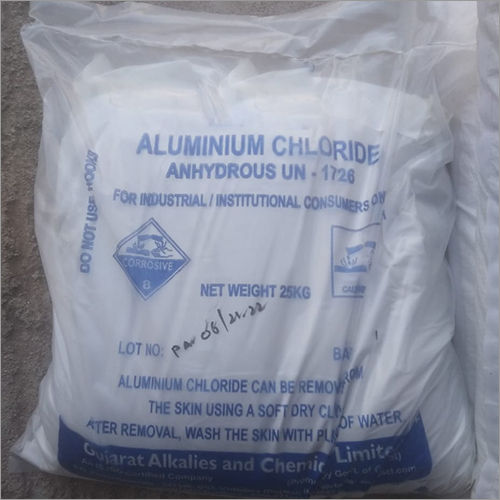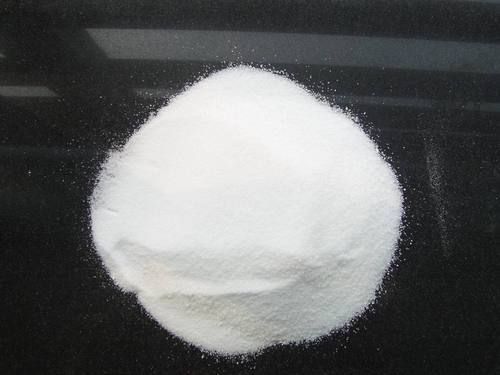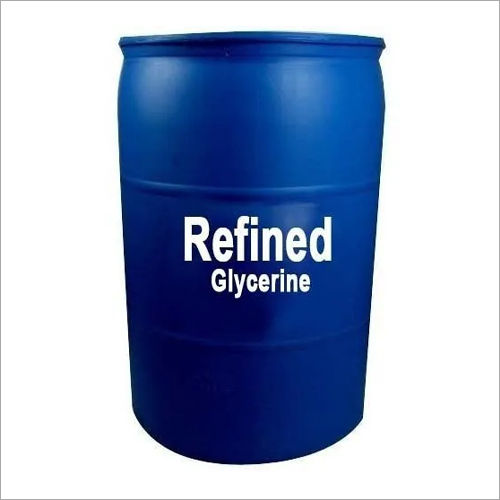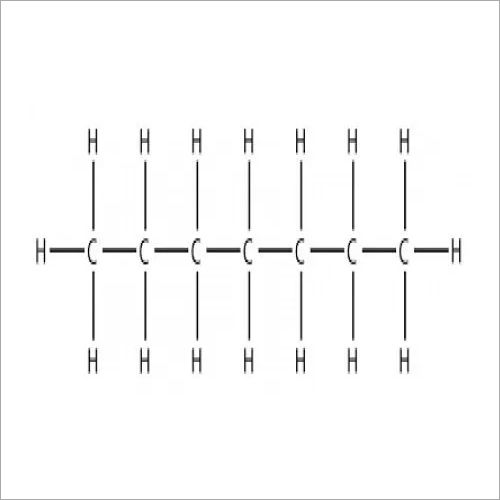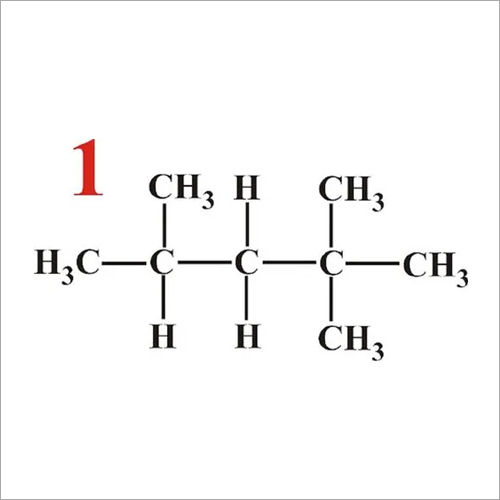Aluminium Chloride
Product Details:
Aluminium Chloride Price And Quantity
- 500 Metric Ton
- 65 INR/Kiloampere
Product Description
Chemical Formula: AlCl
Molar Mass: 133.34 g/mol
Appearance: Aluminum chloride typically exists as a white to pale yellow crystalline solid.
Odor: It has a sharp, irritating odor.
Density: The density of solid aluminum chloride is approximately 2.48 g/cmï.
Melting Point: Aluminum chloride melts at around 192.4C (378.3F).
Boiling Point: It typically boils at around 180C (356F) under atmospheric pressure, though it can decompose before reaching its boiling point.
Solubility: Aluminum chloride is highly soluble in water, ethanol, and other polar solvents.
Stability: It is hygroscopic and tends to form hydrated forms in moist air. Anhydrous aluminum chloride is highly reactive and must be handled with care to avoid contact with water or moisture.
Chemical Properties: Aluminum chloride is a Lewis acid, meaning it can accept electron pairs from Lewis bases. It is extensively used as a catalyst in various organic reactions, such as Friedel-Crafts acylation and alkylation. It also finds applications in polymerization reactions and as a coagulant in water treatment processes.
Purity: Commercial grades of aluminum chloride can vary in purity, typically ranging from 95% to 99.9% purity. High-purity grades are often required for specific applications, especially in the pharmaceutical and electronics industries.
Handling and Storage: Due to its reactivity with moisture, aluminum chloride should be stored in tightly sealed containers in a dry environment. It should be handled with appropriate precautions, including wearing protective gloves and eyewear, and avoiding inhalation of dust or vapors.
These specifications may vary depending on the grade and intended use of the aluminum chloride. It's important to refer to the specific product documentation and safety data sheets provided by the manufacturer for precise information.

Price:
- 50
- 100
- 200
- 250
- 500
- 1000+
